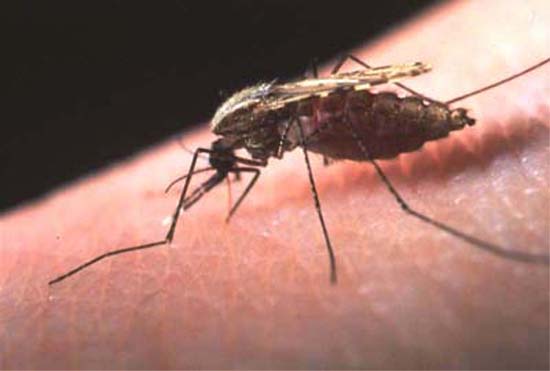Malaria cases rare, but govt to continue prevention efforts

By Sabina Idayatova
The Global Fund to Fight AIDS, Tuberculosis and Malaria will
suspend cooperation with the Azerbaijani Health Ministry on a
program to fight malaria from next year and the program is to be
implemented further by the ministry itself, deputy chairman of the
commission for coordination of international health projects under
the ministry, Soltan Mammadov, said on May 1.
According to Mammadov, during the latest assessment of the project the World Health Organization revealed that Azerbaijan has fulfilled all of its outlined goals. "Therefore, it was decided that the financial capacity of the Health Ministry can achieve complete prevention of malaria's emergence in the country and continue the activity in the fight against malaria itself."
"Though Azerbaijan has sent a proposal to fund a new project on malaria, it is not currently necessary. However, the cooperation will be continued in the framework of the fight against tuberculosis and AIDS," Mammadov added.
Malaria is a serious and sometimes fatal disease caused by a parasite that commonly infects a certain type of mosquito called Anopheles which feeds on humans. People who get malaria are typically very sick with high fevers, shaking chills, and flu-like illness. Although malaria can be a deadly disease, illness and death from malaria can usually be prevented.
Malaria spread mainly in sub-Saharan, African and South Asian countries. According to new researches, children up to the age of 5 are more likely to contract malaria than adults.
About 500 million people around the world are infected with malaria, and 1 million die each year. According to the World Health Organization report, every 30 seconds a child dies of malaria.
In the distant past, malaria was rather widespread in Azerbaijan. The situation began to deteriorate again in the early 1990s.This was largely due to socio-economic conditions, changes in agricultural practices and seasonal migration of agricultural workers, as well as displacement of nearly 1 million people due to an armed conflict unleashed by the invader Armenia.
According to the head of parasitology department at the Republican Center of Hygiene and Epidemiology Suleyman Mammadov, the natural climatic conditions in 80 percent of the Azerbaijan Republic are conducive for the spread of malaria.
"Kura-Araz and Lankaran lowlands have been considered highly endemic places of malaria in Azerbaijan. Marshes, puddles are the main areas of reproduction and evolution of these mosquitoes," Mammadov said.
Mammadov further said that at present, as a result of the undertaken large-scale activities, the disease has essentially disappeared in Azerbaijan.
"Some three to four cases have been recorded in our country during several years. This year, only three cases have been reported in Azerbaijani citizens who came from Africa and were affected by tropical malaria last year. They were treated at the special department dealing with parasitic diseases of the National Scientific Research Institute of Medical Prophylaxis and completely recovered."
Mammadov also said the Global Fund assisted Azerbaijan to overcome malaria, herewith, due to the stable economic development and attention for healthcare, since the current year Azerbaijan will monitor the process itself.
Furthermore, preventive measures have been taken in the country since the beginning of May. Chemical prophylaxis work is being carried out to render harmless the potential infection sources. Wetlands in damp areas are being disinfected to eradicate anopheles mosquitoes.
According to Mammadov, the 5-year agreement on the elimination of malaria signed between Azerbaijan's Health Ministry and the Fund in 2008 is expiring on Oct. 31 and a new state program is being prepared for state support in the elimination of malaria.
The Azerbaijani government committed to an intensive response to the burden of malaria, and developed a National Malaria Control Program in cooperation with the World Health Organization/Europe in 1998.
By endorsing the Tashkent Declaration -- the move from malaria control to elimination -- in December 2005 Azerbaijan once again confirmed its political support for the fight against malaria.
In March 2008 the government adopted the National Malaria Elimination Strategy for the period 2008-2013 and in August 2008, the National Malaria Elimination Action Plan for 2008-2013.
Meanwhile, the WHO regarded Azerbaijan as a country in the stage of "liquidation", according to its World Malaria Report 2012.
Soltan Mammadov also said that the Global Fund to Fight AIDS, Tuberculosis (TB) and Malaria will also provide assistance to Azerbaijan in fully providing drugs for TB patients under a newly approved two-year project.
Another contribution of the Fund is financial support for Azerbaijan on the HIV program for 2013-2015.
According to Mammadov, in accordance with the new program, all the AIDS patients will be provided with antiretroviral drugs.
Here we are to serve you with news right now. It does not cost much, but worth your attention.
Choose to support open, independent, quality journalism and subscribe on a monthly basis.
By subscribing to our online newspaper, you can have full digital access to all news, analysis, and much more.
You can also follow AzerNEWS on Twitter @AzerNewsAz or Facebook @AzerNewsNewspaper
Thank you!
